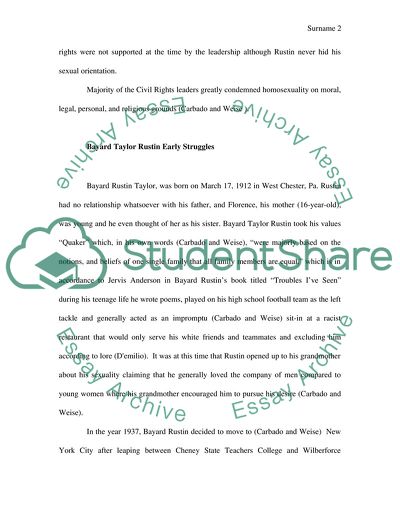Cite this document
(Life of Bayard Rustin Essay Example | Topics and Well Written Essays - 2000 words, n.d.)
Life of Bayard Rustin Essay Example | Topics and Well Written Essays - 2000 words. https://studentshare.org/history/1819346-african-american-history
Life of Bayard Rustin Essay Example | Topics and Well Written Essays - 2000 words. https://studentshare.org/history/1819346-african-american-history
(Life of Bayard Rustin Essay Example | Topics and Well Written Essays - 2000 Words)
Life of Bayard Rustin Essay Example | Topics and Well Written Essays - 2000 Words. https://studentshare.org/history/1819346-african-american-history.
Life of Bayard Rustin Essay Example | Topics and Well Written Essays - 2000 Words. https://studentshare.org/history/1819346-african-american-history.
“Life of Bayard Rustin Essay Example | Topics and Well Written Essays - 2000 Words”. https://studentshare.org/history/1819346-african-american-history.


